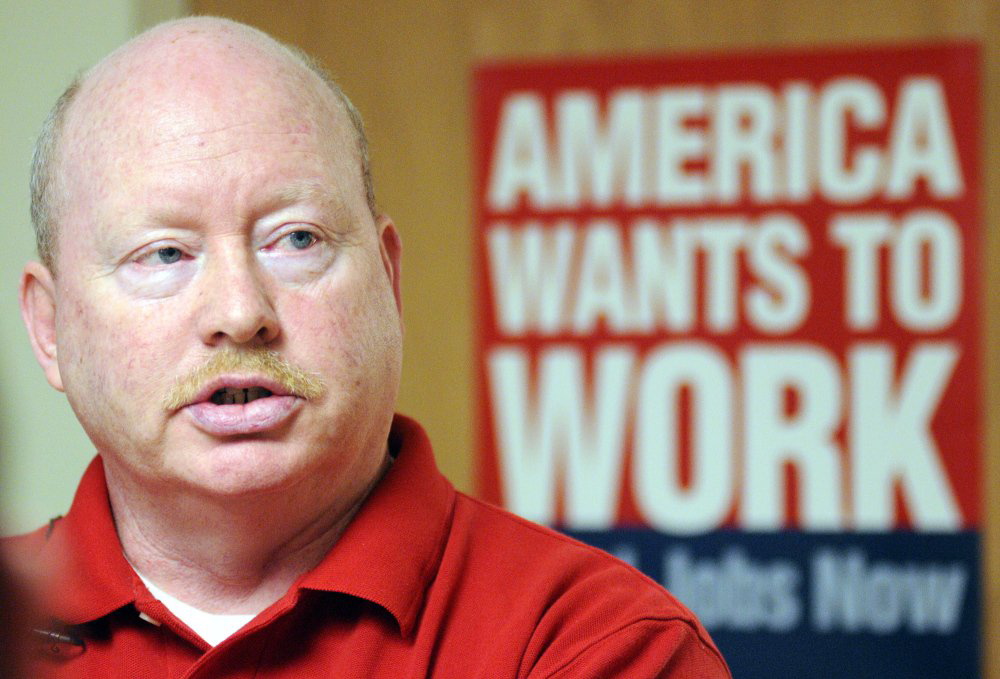FairPoint Communications workers in Maine have until Tuesday night to accept a voluntary severance deal before up to 80 employees are laid off in order of reverse seniority.
But union leader Peter McLaughlin said that many employees had not received their severance offers as of Monday afternoon and that the company’s employee seniority list – the means for determining which workers keep their jobs – is riddled with errors.
McLaughlin, president of the International Brotherhood of Electrical Workers’ Local 2327 in Augusta, said the union is asking North Carolina-based FairPoint to push back its 11:59 p.m. Tuesday deadline so workers who haven’t received offers yet can have time to examine and accept them if they choose.
The roughly 80 positions that FairPoint plans to eliminate in Maine represent about 10 percent of its workforce in the state, McLaughlin said. The layoffs come a little over four months after the two unions representing FairPoint workers in Maine, New Hampshire and Vermont reached a new collective-bargaining agreement with the company following a four-month strike.
Before the layoffs commence, employees in jobs targeted for downsizing have the option of leaving voluntarily in exchange for one week of severance pay for each year of service, capped at 18 weeks.
If a surplus of workers in a given job category volunteered to leave, their requests would be granted in order of seniority. Less senior workers also would have the opportunity to leave voluntarily if other employees at risk of being laid off agreed to take over their jobs.
FairPoint’s records on worker seniority, which will determine the order of both voluntary and forced separations, contain multiple errors, McLaughlin said.
“If we have an inaccurate seniority list, then the wrong person could get laid off,” he said. “We’re toying with people’s lives here.”
There is a process for disputing inaccurate seniority records, McLaughlin said, but the issue likely would not get worked out until after the layoffs, which means the affected workers would have to fight to get their jobs back, along with reimbursement for lost pay.
FairPoint spokeswoman Angelynne Beaudry declined to answer specific questions about the voluntary separation offers, Tuesday’s deadline or the accuracy of the company’s seniority list, issuing a short written statement instead.
“The union’s objective is to identify ways to reduce the number of positions being eliminated,” Beaudry wrote. “They have not been successful in doing so, so from their perspective perhaps the process is going poorly. From our perspective, we are following the terms of the collective bargaining agreements that were negotiated and ratified.”
When asked whether it would be unfair to keep the Tuesday deadline even if some workers had not yet received their separation offers in the mail, Beaudry responded, “We are working to ensure that the employees have the appropriate amount of time to respond.”
The layoffs are part of a restructuring effort that the company announced in mid-May to shed about 260 positions in 17 states. The bulk of the job cuts, including the closure of a call center in South Burlington, Vermont, will come in FairPoint’s northern New England operations, which employ more than 1,700 union workers, including about 800 in Maine.
Members of both IBEW and the Communications Workers of America in Maine, New Hampshire and Vermont will be affected, union leaders said.
FairPoint has said the layoffs are necessary to keep costs in line with the company’s shrinking revenue from landline telephone service. Like many telecommunications companies, FairPoint is mandated to provide land-based phone service throughout states such as Maine, where it is considered a “provider of last resort.” The company has unsuccessfully lobbied the Maine Legislature to be released from that mandate.
In 2014, FairPoint asked the Maine Public Utilities Commission for a $62.8 million subsidy from the Maine Universal Service Fund, which subsidizes rural telephone service. Several incumbent carriers with smaller territories receive subsidies from the fund, but FairPoint does not.
Fairpoint said the subsidy was necessary to keep the company solvent, but the matter was referred to the Legislature with a recommendation from the PUC that FairPoint was not entitled to the subsidy. The Legislature has not taken any action to approve the subsidy.
In October, union members walked off the job after contract negotiations failed to reconcile the company’s desire to cut $700 million in operating costs and the unions’ offer of $200 million in concessions.
Union members and FairPoint management ultimately approved a new, 3½-year collective bargaining agreement on Feb. 22, but a final version of the agreement has yet to be released to union members or the public.
McLaughlin said the new agreement is in draft form and that the unions and FairPoint management are in the process of finalizing it.
“It’s still in the proofreading stage,” he said, noting that it is common for the final approval process to take a few months.
Copy the Story LinkSend questions/comments to the editors.




Success. Please wait for the page to reload. If the page does not reload within 5 seconds, please refresh the page.
Enter your email and password to access comments.
Hi, to comment on stories you must . This profile is in addition to your subscription and website login.
Already have a commenting profile? .
Invalid username/password.
Please check your email to confirm and complete your registration.
Only subscribers are eligible to post comments. Please subscribe or login first for digital access. Here’s why.
Use the form below to reset your password. When you've submitted your account email, we will send an email with a reset code.